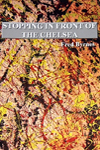
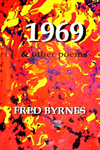
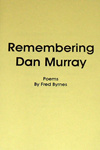
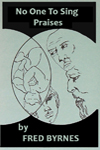
 |
 |
 |
 |
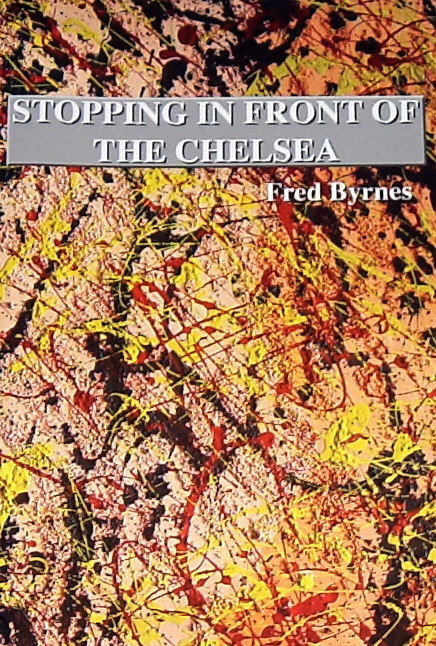 |
Stopping in Front of the Chelsea
In Fred Byrnes' Stopping in Front of the Chelsea, we are faced with "this idea called America," and its realities. In his prose vignettes, Byrnes gives voice to working class heroes (those who make a living dusting shelves, mopping floors, changing light bulbs, who dine on chuck steak and baked potato), the downtrodden, the "mentally challenged," and the lonely. "Loneliness is like a desert, billions of grains of sand with nobody listening." He reminds us that not everyone in America is treated equally, likening the "elitist class to a rat "choking the life out of our planet." He remembers the young lives lost in Vietnam and our current war with "the aftermath of missiles launched in the guise of freedom." He welcomes, Byrnes writes, "the warmth of the sun shining through his kitchen window." He's learned to appreciate this everyday miracle, "by attending the funerals of those he's loved..." Fred Byrnes' short prose bits are shot through with the stink of real life. He tells the truth with grim resignation and hard-earned wisdom. It's easy enough to throw Bukowski's name around here, but Byrnes is more astute politically - he knows that class-war
is ongoing, and everyone on the bottom ultimately loses, usually without knowing they've been fucked, or by whom. For Byrnes, getting it right on the page is the best revenge - and he gets it right time and again.
|